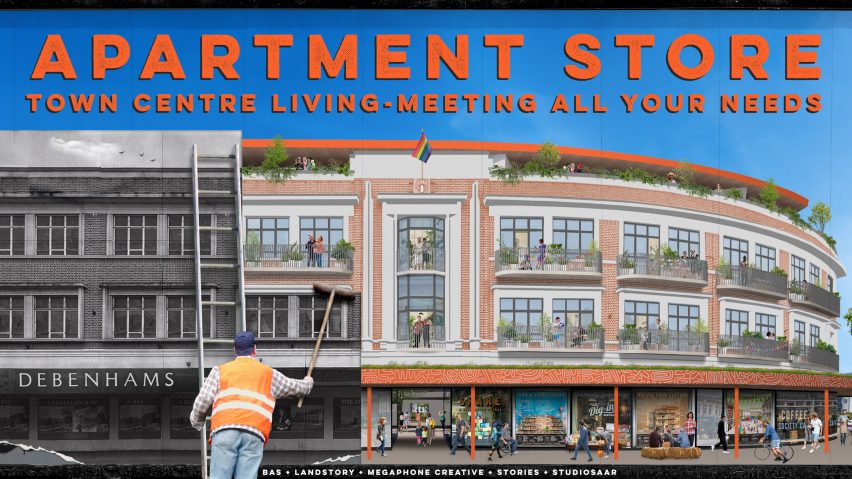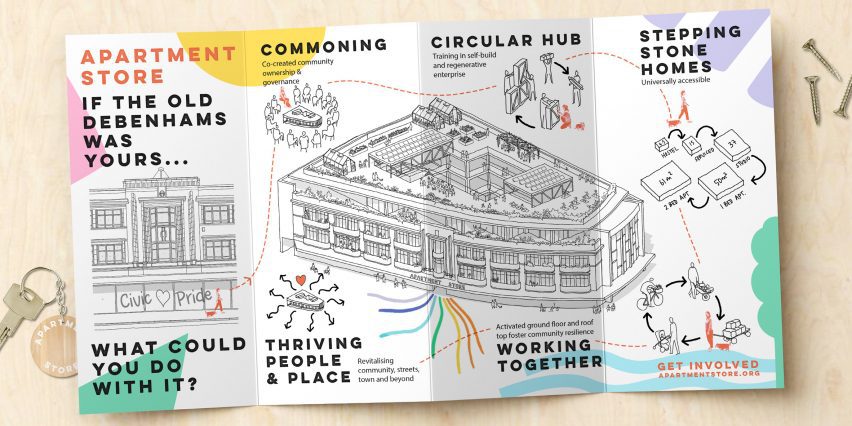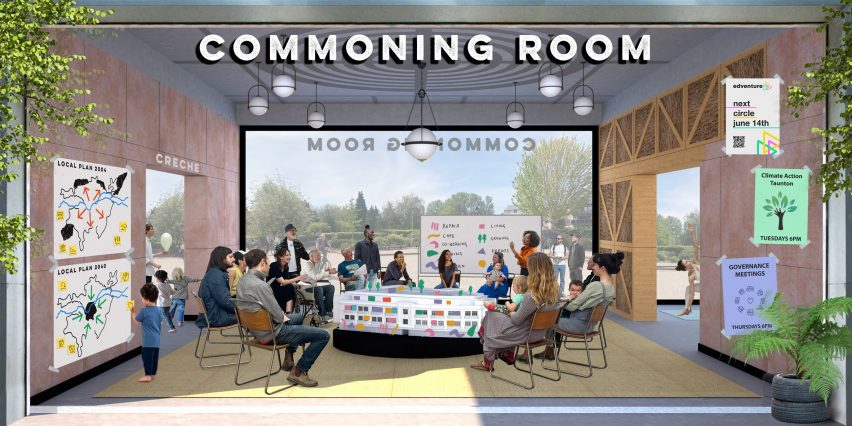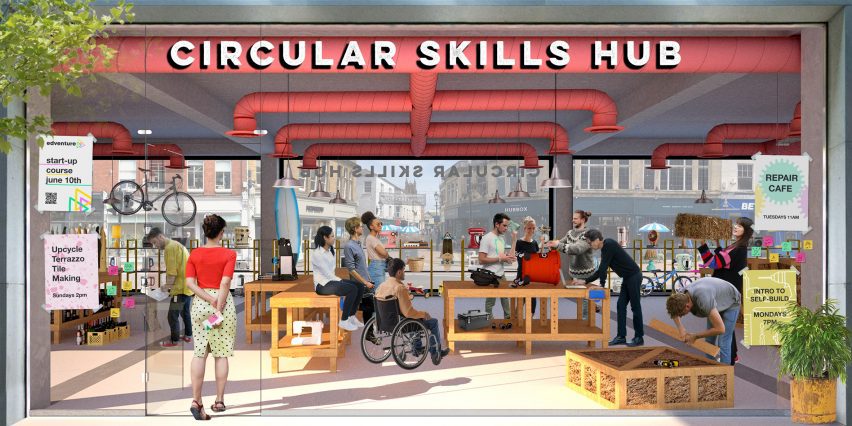
Studio Saar wins Davidson Prize for department-store housing concept
Architecture practice Studio Saar has won the Davidson Prize with Apartment Store, a concept exploring how the UK's vacant retail spaces can be repurposed as community-owned housing.
The Apartment Store model focuses specifically on how empty department stores can help tackle the country's shortage of homes while creating "buzzing circular economy hubs" that reinvigorate towns and cities.
To illustrate the idea, Studio Saar has applied the concept to a vacant Art Deco department store in Taunton.

The Davidson Prize, a design competition focused on the concept of the home, was launched in 2021 in memory of architectural visualiser Alan Davidson.
Studio Saar's winning project was selected from a shortlist of three, designed in response to a brief named Rethinking Home – Adapt and Reuse, which invited solutions to the UK's housing crisis in the context of climate change.
Apartment Store also scooped this year's People's Choice Prize, gaining a quarter of public votes.

Studio Saar developed the concept in collaboration with the developer Stories, placemaking consultant BAS, landscape architect Landstory and filmmaker Megaphone Creative.
Using the Taunton department store as a prototype, it identifies how each floor of an old store can be used as housing and community space.
On its upper levels, the shop floors were reimagined as community-owned homes, co-designed and created with locals using repurposed materials and locally grown biomaterials.
Meanwhile, the ground floor would be filled with community facilities including a tools library, education space and a common room for discussions about the circular economy. Completing the project is a rooftop garden dedicated to growing food.
"We felt that Apartment Store would not only provide new, sustainable homes but would also address the challenge that high streets throughout the UK are facing, turning them back intro thriving hubs for the community," said Amandeep Singh Kalra, the jury chair and associate director at regeneration company Be First.
"The jury could all see themselves living there – and clearly those voting in the People's Choice agreed with us."
The 2024 Davidson Prize winner was revealed last night at Impact Hub Euston as part of the London Festival of Architecture.
The two other shortlisted projects included Robin Hood Co-Living Community, a masterplan focused on converting an old airport near Sheffield into a new neighbourhood. It was designed by architecture studio Alma-nac, engineering firm Constant SD, landscape architect Eric Guibert and filmmaker Mark Blackwell.

The other was Harlow Re-New Town, which was dedicated to showing how the post-war housing stock could be revamped rather than demolished. This was designed by London studios OEB Architects and YAA Projects, alongside author Nick Bano, researcher Dominic Humphrey and filmmaker Stuti Bansal.
The shortlist was revealed earlier this year and chosen from a longlist of 17 projects. They were each awarded £5,000 to develop their proposals and create a two-minute film, which was then presented to the judging panel.
Alongside Singh Kalra, this year's panel included Mikhail Riches co-founder Annalie Riches, Atelier Ten director Duncan Campbell, Elle Decoration UK's design editor Alice Finney, Total Synergy's commercial lead Miles Mitchell and Studio Mutt co-founder Alexander Turner.
Turner's practice Studio Mutt was the winner of last year's Davidson Prize for a project addressing homelessness in Liverpool. In 2022, the award was given to Charles Holland Architects for its proposal for affordable rental co-housing in rural locations.